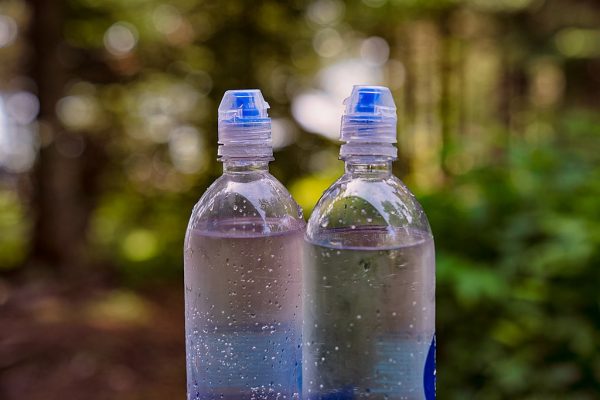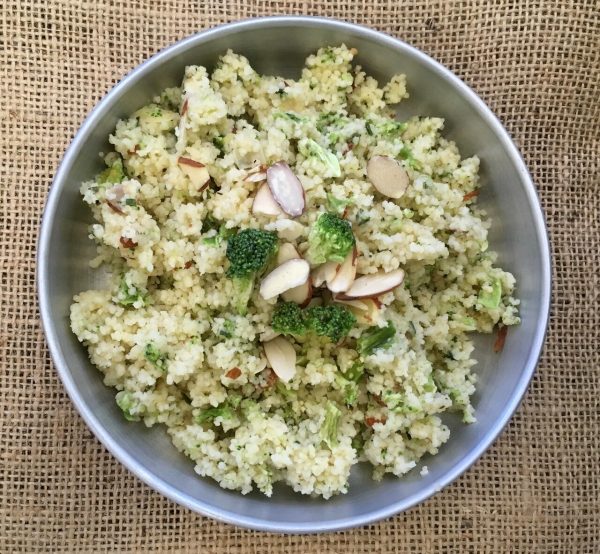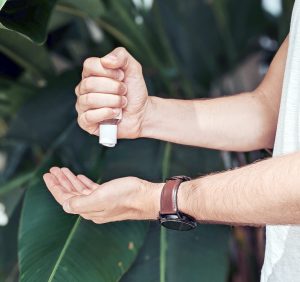No one ever wants to be sick, especially during a backpacking trip. With a myriad of viruses out there, here are a few tips for keeping your immune system going strong so you are less likely to fall ill while on the trail.
Keep a Healthy Diet The overall function of the immune system is to prevent or reduce infection. Modern medicine can battle disease directly, but true health can only be attained by maintaining a healthy and properly functioning immune system.
The overall function of the immune system is to prevent or reduce infection. Modern medicine can battle disease directly, but true health can only be attained by maintaining a healthy and properly functioning immune system.
Your digestive tract is closely tied to your immune system. A healthy immune system is dependent on consistent nourishment. A bad diet leads to malnourishment and makes you more susceptible to infectious diseases. Signs of a weakened immune system include repeated illness, fatigue, infections, slow wound healing, digestive problems, inflammation, and allergic reactions.
The best thing you can do to keep your immune system in top order is to eat a variety of fruits and vegetables, including mushrooms, ginger, turmeric, and garlic, and reduce or eliminate sugar, refined oils, and food additives.
Secondly, eat bugs —those microscopic bugs full of beneficial bacteria in living and fermented food—yogurt, kimchi, miso, sauerkraut, tempeh, and kombucha. Food containing beneficial bacteria, or probiotics, is believed to boost immunity since it is tied to the gut’s health. Despite the benefits it brings to digestion, scientists don’t know for sure how much good bacteria we need and which type is best. This is a complex area to study since humans all have a vastly different gut microbiome. We suggest making fermented food a regular part of your diet, but it will be difficult on the trail. Non-perishable and portable probiotic food options are lackluster. Some possibilities for the trail include sourdough pita or tortilla bread, probiotic green smoothie mix, probiotic coffee blends, and miso soup packets (look for heat-resistant Bacillus Coagulans if mixing with hot water).

If your trail diet does not provide you with all the micronutrients it needs — for instance, you won’t eat vegetables or eat too many convenience snacks — taking supplements may benefit your immune system. Certain nutrients that are known to promote the immune system’s proper functioning include beta-carotene, vitamins B6, C, D, and E, and zinc. These can all be found in trail foods but are very effective when taken as a supplement.
These substances are known to strengthen the immune system –
- Turmeric (curcumin) reduces inflammation.[1]
- Ginger is proven to improve digestion and gut health; reduces inflammation.
- Garlic has protective benefits against all sorts of illnesses due to its antiviral, antibacterial, anti-fungal, and anti-inflammatory properties.[2]
- Chlorella, a green algae that grows in fresh water, is found to increase Immunoglobulin A concentrations in the saliva, which may protect against respiratory tract infections.[3]
- Extra-virgin olive oil contains the chemical oleocanthal, a potent anti-inflammatory.[4]
- Vitamin B6 (Pyridoxine) is vital to supporting biochemical reactions in the immune system by assisting in forming antibodies. Food sources of vitamin B6 are plentiful and include brown rice, corn, nutritional yeast, potato, spinach, kale, soy, banana, plantains, pistachios, sunflower seeds, chickpea (hummus), green peas, and fish.
- Vitamin E is a powerful antioxidant that stimulates the immune system. Foods rich in vitamin E include brown rice, green leafy vegetables, nuts, and seeds.
- Vitamin C, or L-ascorbic acid, is an essential vitamin for fighting disease-causing free radicals. Evidence shows it can reduce the duration of viral infections, including the common cold. Most people associate vitamin C with citrus fruits, but there are better sources, including green cruciferous veggies such as kale, broccoli, and spinach. Red bell peppers are also a good source. Keep in mind that drying and heating destroy up to 80% vitamin C. Because of this, you may consider taking a fortified (lab-made) vitamin C product such as Emergen-C to keep your levels up. Opt for freeze-dried fruits and vegetables if possible in your trail food, and load up on fresh food when you are in town.
- Vitamin D has properties of both a vitamin and a hormone. It helps fight off infections, such as the flu.[5] Vitamin D is also essential for absorbing calcium and phosphorous to keep bones strong. 90% percent of our natural vitamin D comes from the sun; thus, frequent backpackers are not likely to be deficient. However, if exposure to UVB radiation is insufficient (it’s cloudy, or you’re in northern latitudes above 40°N), supplementation is recommended. Of all nutrients, vitamin D is the most difficult to get from food alone. When off-trail during winter months, consider supplementing with vitamin D3 drops for maintaining optimal levels.
- And many more nutrients are not covered here.
Practice Good Hygiene
Infections are caused by microscopic organisms—bacteria, viruses, fungi, or parasites—that enter the body, multiply and interfere with normal functions. Most microbes enter through openings in the body—our noses, mouths, ears, eyes—so don’t touch these areas unless your hands are clean. This is easier said than done! Think how often you scratch an itchy nose, use your finger to dislodge a bug that has flown in your ear canal, rub away grit from your eyes, or wipe your mouth with the back of your hand. We all do these things without giving it a second thought.
Since it is not possible to wash your hands clean with soap and water on the trail, the next best thing is to use hand sanitizer. Use it often. At a minimum, sanitize your hands after urinating/defecating and again before eating.
Lastly, don’t forget to treat your water before drinking it! It would be foolish to sanitize your hands but not your water.
Get Adequate Sleep

Sleeping well is one of the most effective strategies for keeping a robust immune system. Your body repairs itself while you are snoozing. If you have problems sleeping, there are many things that you can do. Wear earplugs if you wake easily. Drink a warm beverage before you hit the sack. Herbal teas (no tea or caffeine) are excellent because they can help relax your mind, allowing you to fall and stay asleep. Some relaxing herbs include mint, lemon balm, linden, chamomile, and valerian. See also our tips for getting better sleep on the trail.
Stay Hydrated

Keeping your body hydrated also boosts your immune health. Water is vital for digestion and helps your body produce and move lymphatic fluid, carrying white blood cells and other immune system cells. The lymphatic system can be thought of as the body’s natural sewage treatment system. In essence, it is a network of tissues and organs that rid the body of toxins, waste, and other unwanted materials.
Keep Moving

Keep hiking because any moderate activity reduces your risk of illness. One theory behind this might be that exercise improves blood flow and movement of lymphatic fluid, which flushes out toxins. During exercise, your muscles release substances known as myokines, which promote various anti-inflammatory functions and the building of new tissue.[6]
Just don’t overdo it when hiking. Any sudden prolonged, rigorous activity can suppress the immune system, making you susceptible to infection and stress injuries and fractures.
Final Thoughts
The bottom line is maintaining a healthy lifestyle both on and off the trail to defend against invaders. Although the immune system is powerful, it can only work if cared for properly. Proper care includes eating and sleeping well, practicing good hygiene, and staying hydrated. It also includes avoiding substances and habits which are known to depress it–the use of recreational drugs, mental stress, and exposure to pollutants and pesticides — but you probably already knew that.
Have any valuable tips to share? Please tell us in the comments section below.
Stay healthy!
References
Cambridge.org. Retrieved 31 March 2020, from https://www.cambridge.org/core/services/aop-cambridge-core/content/view/6B2D26F3FA0E0B1D8E8BD77DA2A9F4C1/S0007114515002093a.pdf/lowgrade_inflammation_diet_composition_and_health_current_research_evidence_and_its_translation.pdf
A non-traditional use for probiotics: illness in athletes. (2020). Examine.com. Retrieved 31 March 2020, from https://examine.com/nutrition/non-traditional-use-for-probiotics-illness-in-athletes/

